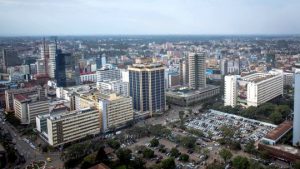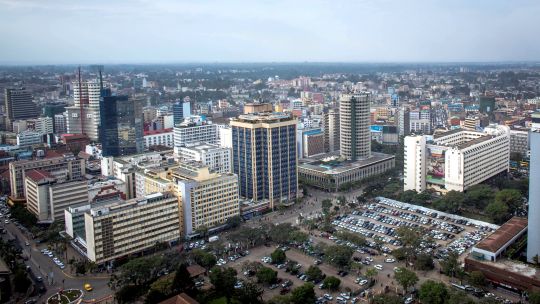According to The Kenyan Wallstreet majority of the households in Kenya have in recent months lost their sources of livelihood as a result of the devastating economic effects of the still ongoing Coronavirus pandemic. The International Monetary Fund (IMF) made it known that the socio-economic impact of the Coronavirus pandemic has been severe and will require a bit of time before a reversal can occur.

International Institute for Environment and Development (IIED). www.iied.org
Individuals in Kenya who have been adversely affected by the ongoing Coronavirus pandemic, have come up with strategies to survive the numerous effects of the pandemic.
A report which was published by the International Monetary Fund (IMF) revealed that the most common coping mechanism, has been reducing food consumption and even non-food consumption.
According to the report by the International Monetary Fund (IMF) an approximate of 41 percent of the individuals who participated in the survey from October 2020 to November 2020, had cut back on their food consumption severely in order to cope with the negative effects of the Coronavirus pandemic. 40 percent of the participants revealed that they had been reduced to non food consumption during the same period.
Between July 2020 and September 2020, more than 50 percent of the respondents revealed that they had reduced their food intake due to numerous challenges brought on by the Coronavirus pandemic. More than 50 percent of the people who participated in the survey added that they had cut their non food consumption.
Other strategies used by individuals in Kenya to counter the effects of the still ongoing Coronavirus pandemic besides a reduction in food consumption and non food consumption include, the selling of assets, an increased usage of loans, added reliance on savings, getting help or aid from family and friends, the purchasing of goods and services on credit, and participating in activities that led to the creation of additional income.
For the periods of May 2020 to June 2020, July 2020 to September 2020 and October 2020 to November 2020, an estimate of 20 percent of the participants made it known that they did not take any action(s) as a result of the ongoing Coronavirus pandemic. This shows that for the estimated 20 percent, the Coronavirus pandemic either had very little negative effects on their source(s) of livelihood, or did not have any negative effects on their source(s) of livelihood at all.
How informative was this article? Are there any other news topics, categories, or How To topics, that you would like us to write on? Feel free to reach out to Mpesa Pay in the comment section.


